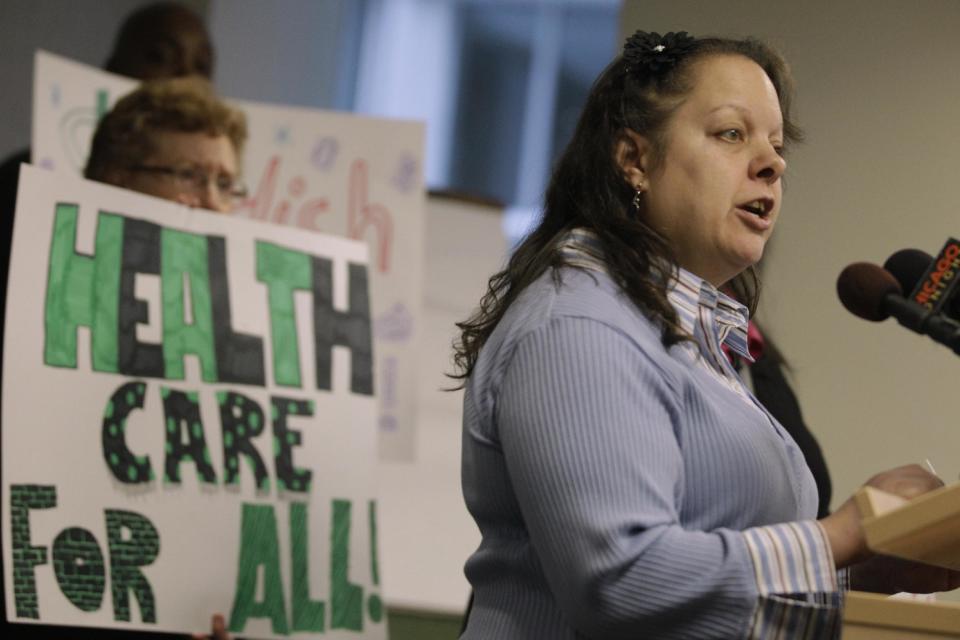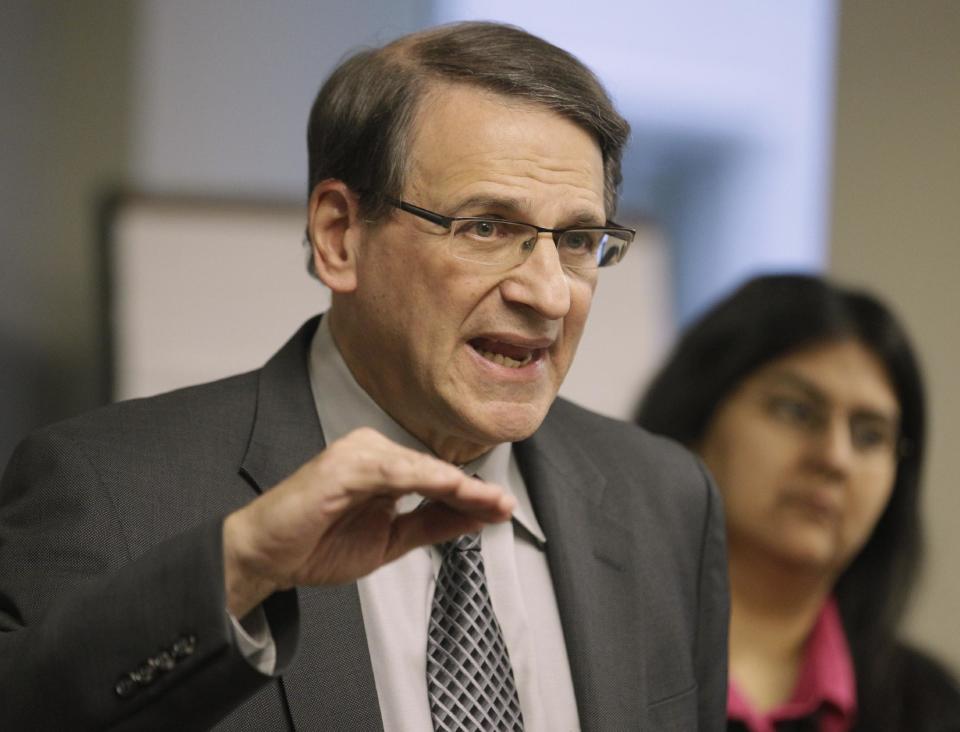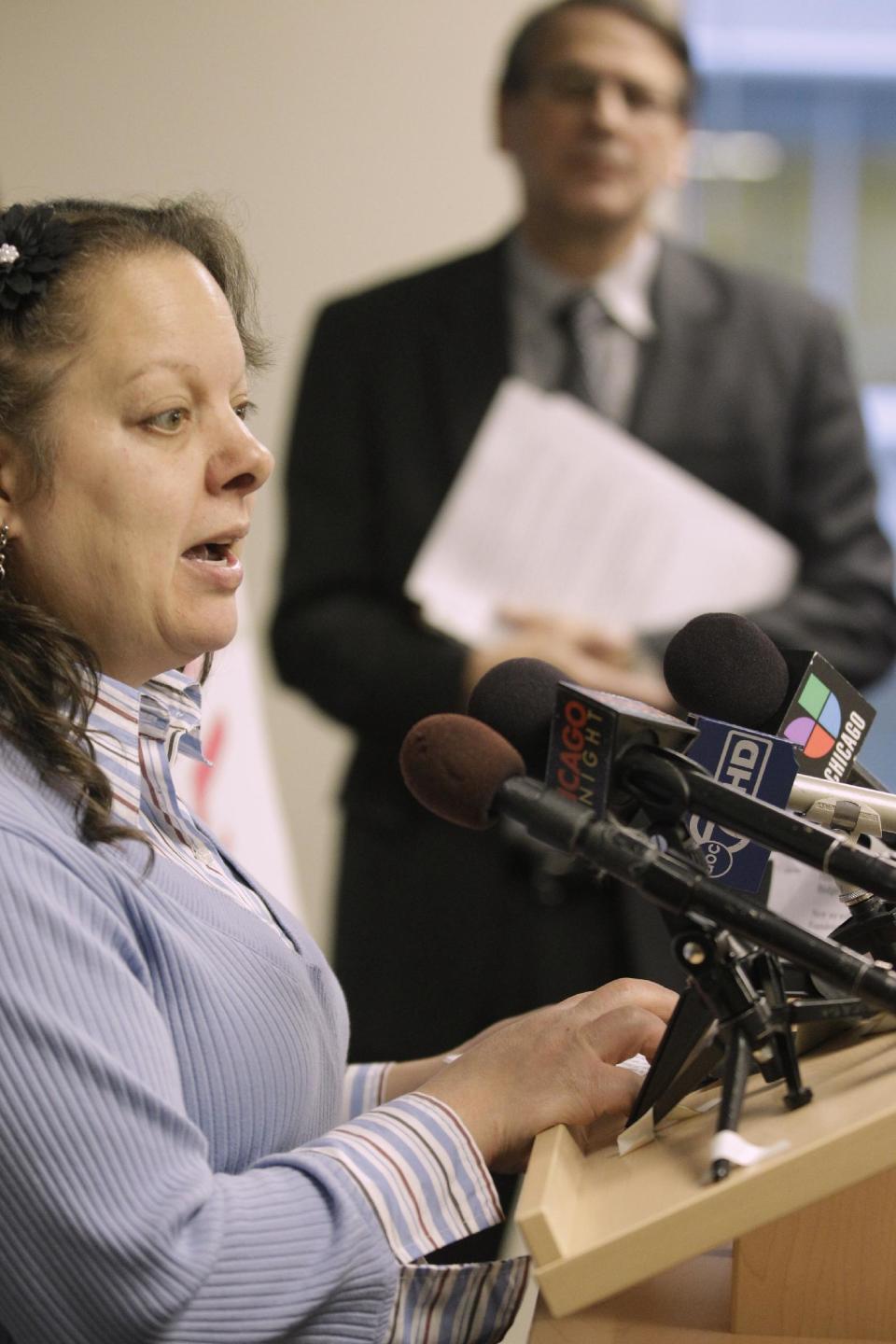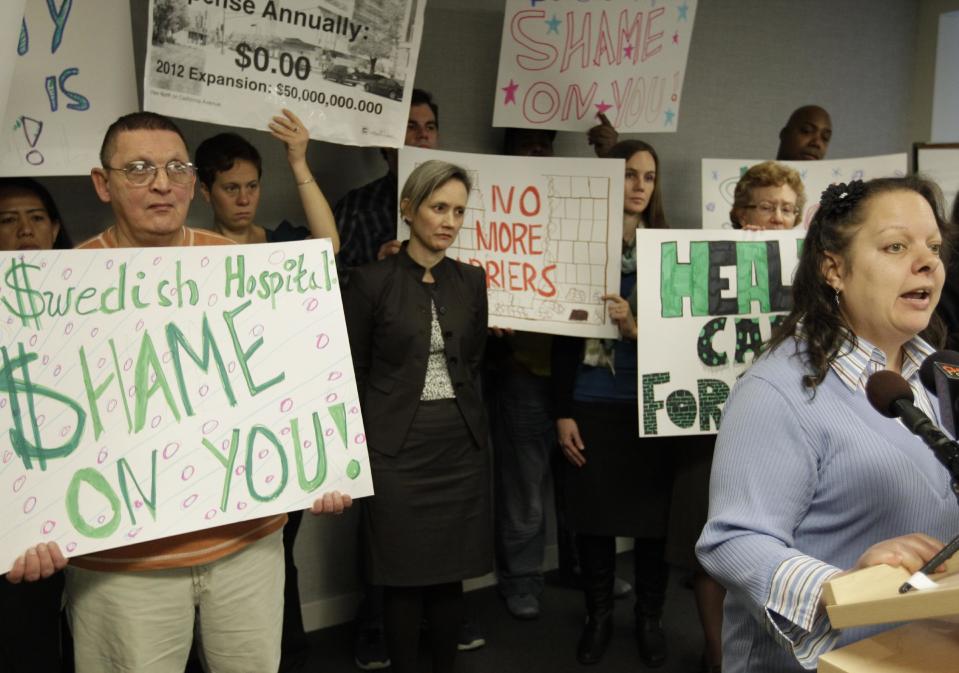Uninsured patients sue Chicago nonprofit hospital
CHICAGO (AP) — A lawsuit filed Thursday claims a nonprofit hospital in northwest Chicago failed to provide charity care to two low-income, uninsured patients, reopening a longstanding controversy in Illinois over whether hospitals are doing enough charitable work to qualify for lucrative tax exemptions.
Swedish Covenant Hospital repeatedly lost one patient's financial assistance application and threatened to send her bill to a collection agency, according to the lawsuit. The hospital incorrectly told another patient she was ineligible for assistance and demanded cash from her, the complaint alleges.
The practices amount to "bureaucratic barriers" that prevent eligible patients from getting free care, according to the lawsuit, and the hospital has a policy of attempting to collect from "even the poorest of patients" through bill collectors and wage garnishment.
The hospital gets about $8 million in annual tax breaks and owes the community a more reliable charity care system, the plaintiffs' attorney Alan Alop of the legal services group LAF said at a press conference Thursday in Chicago. The lawsuit claims unfair practices under the Illinois consumer fraud law and seeks $50,000 in punitive damages and a change in hospital policy.
Swedish Covenant spokeswoman Leigh Ginther said Thursday she couldn't comment on the lawsuit, but she said every patient who is identified as uninsured is given an application for charity care and a personal explanation of the process.
"It is the patient's responsibility to return the completed paperwork," Ginther said. The hospital reported $6.2 million in charity care expenses last year, nearly 3 percent of its net revenue.
Nearly 2 million Illinois residents are uninsured, or about 15 percent. The state constitution, court decisions and state law require Illinois hospitals that receive tax exemptions to provide charity care, but until this year the definition of charity wasn't clear.
The lawsuit comes as Illinois Attorney General Lisa Madigan is writing new rules that will shape the standards for applications and eligibility for hospital charity care as required by a law passed earlier this year.
A Chicago-based advocacy group, the Fair Care Coalition, wants Madigan to recommend that a standard, universal financial assistance application be used by all Illinois hospitals. The group also wants a thorough reporting mechanism so the public can check that hospitals are obeying the law, said Janna Simon of the coalition.
Madigan spokeswoman Natalie Bauer said Thursday the attorney general "has been at the forefront of efforts to ensure access to quality health care for the uninsured. That will continue to be the priority as we draft rules to ensure that people can apply for and receive free or discounted health care."
At the press conference, plaintiff Ramona Ortiz-Patino described filling out multiple applications for financial assistance and later being told the hospital hadn't received them. An unemployed diabetic, she was facing charges for emergency room visits for extreme pain in her right leg.
After Ortiz-Patino submitted a third application, a hospital employee telephoned her and "let me know that my bill would be going to collections because I hadn't paid it," she said. "I didn't understand why the hospital was threatening me when they knew I had zero income and I submitted three applications" for financial assistance.
How much charity care should nonprofit hospitals provide? The issue has been brewing for years in Illinois.
In 2009, two large Illinois hospital systems settled class-action lawsuits that claimed they had overcharged uninsured patients. In separate settlements, Resurrection Health Care and Advocate Health Care agreed to pay refunds to tens of thousands of individuals.
Next, a 2010 Illinois Supreme Court ruling suggested nonprofit hospitals that behave like businesses shouldn't qualify for tax exemptions. Citing that court decision, the state Department of Revenue denied tax exemptions to three hospitals in 2011 and signaled more denials for other hospitals could follow.
That set off a storm of controversy the Legislature addressed this year.
Nonprofit hospitals won a broad definition of charity care from Springfield in a new state law that will allow them to continue their tax-exempt status. Hospitals were required to provide free care to patients of certain income levels, and the attorney general was directed to draft new rules for hospital financial assistance applications.
___
AP Medical Writer Carla K. Johnson can be reached at http://www.twitter.com/CarlaKJohnson.




